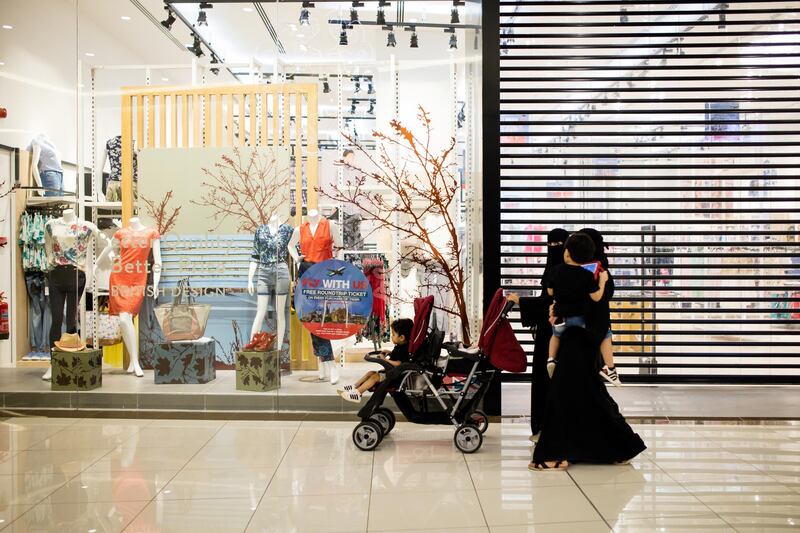One of the biggest changes to affect our lives is taking place all around us and yet we have only begun to notice a small part of it. It's the change in the way we shop. Of course we take for granted that we shop online nowadays, but we have barely begun to consider the profound consequences. Online shopping changes not just how and where we buy things, but also how we live and even perhaps where we will want to live in future. We are surfing the latest and biggest wave to turn retail shopping upside down in a world in which change is the only real constant.
One of my earliest memories, I must have been four years old, was my grandmother taking me into a very old-fashioned family grocery store in an unfashionable area of Glasgow. I was stunned to see that the butter came in huge tubs not in ready-wrapped portions. The serving staff measured a big lump out with large wooden paddles, weighed it and then sold the butter to my grandmother. Even as a child I knew this was peculiar. Butter came ready-wrapped from the supermarket fridge. Clearly that old-fashioned business was doomed. In many countries, beginning in the United States, the supermarket boom destroyed grocers, fishmongers, butchers and other family enterprises. Food was chopped up and packaged in plastic. Bigger was seen as better, leading to the next wave: hypermarkets and shopping malls.
My first visit to Little Rock, Arkansas, where Bill Clinton had been state governor more than 25 years ago, showed how American cities had the life sucked out of them. The gigantic Walmart chain and the Walmartisation of America meant the centre of Little Rock was a sad collection of boarded-up shops and down-at-heel small business survivors. Only the poor seemed to shop in the city centre. Anyone with a car drove to find better prices and more choice at the mall. It was as if an economic neutron bomb had hit downtown, destroying the vibrancy of this southern city. Well, now the latest shock wave has hit.
_______________
Read more from Opinion
[ Saudi's Crown Prince and the US administration need to find a common gameplan on shared concerns ]
[ Saudi's Crown Prince will seek clarification from the US over its role in the Middle East ]
[ A happier, healthier society means investing in people, not pills ]
_______________
At the Scottish Property Federation conference in Edinburgh economists, investors and other experts noted that online shopping companies such as Amazon and the logistics organisations that deliver goods to our homes are now sucking the lives out of big retail and superstore developments. At a separate conference of leading food retailers I was told that supermarkets have abandoned plans for enormous out-of-town developments. Large American malls have seen such a drop in business that the future of some is increasingly precarious. Many in the West have abandoned the idea of driving the car for a large weekly supermarket shop. Taken together, three major factors are changing our shopping habits forever: ordering online, the ability to have meals delivered to our homes, and the convenience of, well, convenience stores — the family shops just round the corner which supply the necessities we keep forgetting. Town planners in Scotland suggested to me that what was bad news for the out of town malls could be very good news for rejuvenated city centres. Many of us like to walk to where we shop. In London, local greengrocers, a bakery, a fishmonger and butcher have all returned a short walk from my door. Meat or fish in plastic wrappings in the supermarket have given way to my expert fishmonger recommending what he thinks is best. The freshest of fish is prepared to order, while customers watch.
When I tackled one of Britain’s major retailers about where all this is leading he told me bluntly that worldwide there are only two ways to make money out of a large store: “price and theatre”. But the internet will always have the edge on price, he said. Prices for goods delivered to your home may fall even further when Amazon begins deliveries by drone, and logistics companies find ways to use driverless vans or trucks. The result is that owners of shopping malls, department stores or specialist retailers are constantly re-thinking the shopping experience to make us want to close our laptops and go to a real bricks-and-mortar shop. Expertise, for example, works. Customers want a knowledgeable person to help in choosing electronic equipment, cosmetics, books or even how to cook a special cut of meat or fish. If the planning and retail experts are correct then shopping malls need to turn every visit into a kind of theatrical showtime, a learning and fun experience rather than a chore. Planners suggest we will do fewer shopping journeys by car in future. And maybe, one day, as the world moves away from encasing much of what we eat in disposable plastic or other wrappers, some enterprising grocer will start selling freshly churned butter from a large tub, patted with wooden spatulas. My grandmother, wherever she may now be, may yet have the last laugh.





